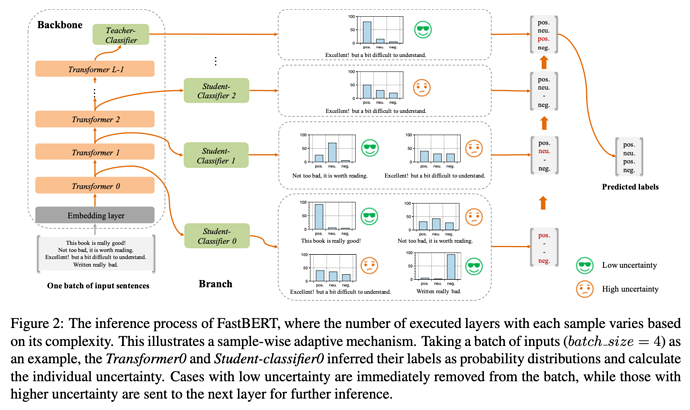This is a typical engineering paper which takes about 5 mins to read. It adopts ideas from adaptive inference and knowledge distillation into the same model, allowing for responsive control of effective layers per sample.
Their training method is straightforward:
- Train a teacher model with all layers.
- Train 10 student classifiers with each layer using soft labels from the teacher model. Meanwhile, all the layers are frozen.
During inference, use the uncertainty (likelihood) to decide whether to continue inference at the next layer or to stop at the current layer.
Overall Recommendation
- 5: Transformative: This paper is likely to change our field. It should be considered for a best paper award.
- 4.5: Exciting: It changed my thinking on this topic. I would fight for it to be accepted.
- 4: Strong: I learned a lot from it. I would like to see it accepted.
- 3.5: Leaning positive: It can be accepted more or less in its current form. However, the work it describes is not particularly exciting and/or inspiring, so it will not be a big loss if people don’t see it in this conference.
- 3: Ambivalent: It has merits (e.g., it reports state-of-the-art results, the idea is nice), but there are key weaknesses (e.g., I didn’t learn much from it, evaluation is not convincing, it describes incremental work). I believe it can significantly benefit from another round of revision, but I won’t object to accepting it if my co-reviewers are willing to champion it.
- 2.5: Leaning negative: I am leaning towards rejection, but I can be persuaded if my co-reviewers think otherwise.
- 2: Mediocre: I would rather not see it in the conference.
- 1.5: Weak: I am pretty confident that it should be rejected.
- 1: Poor: I would fight to have it rejected.

